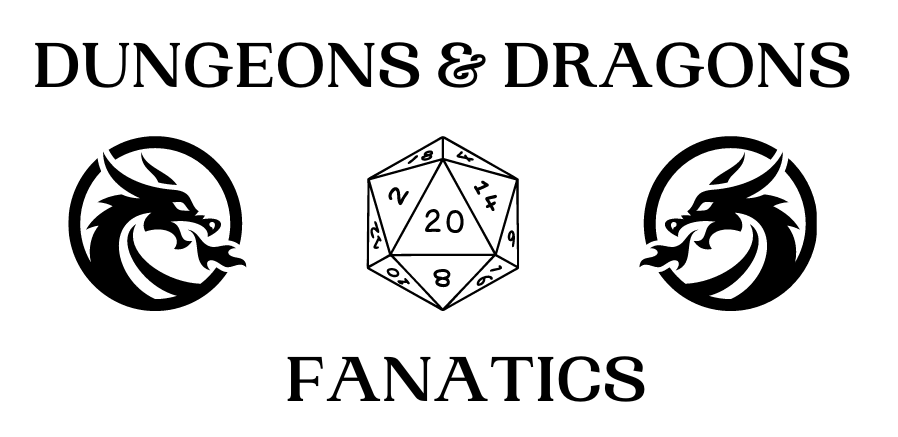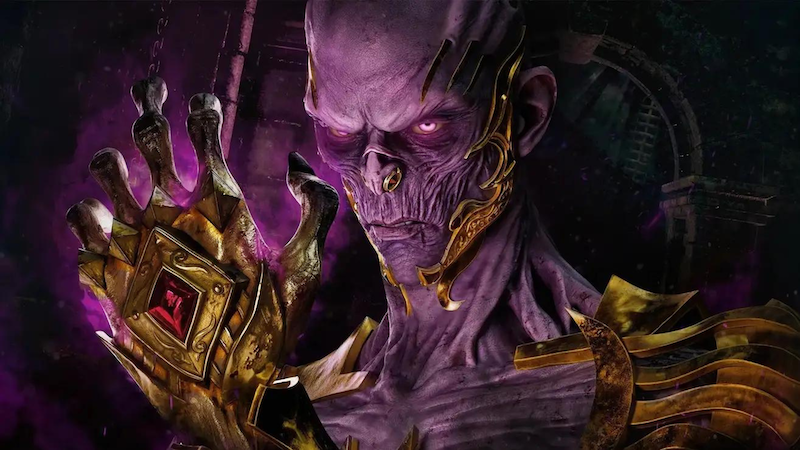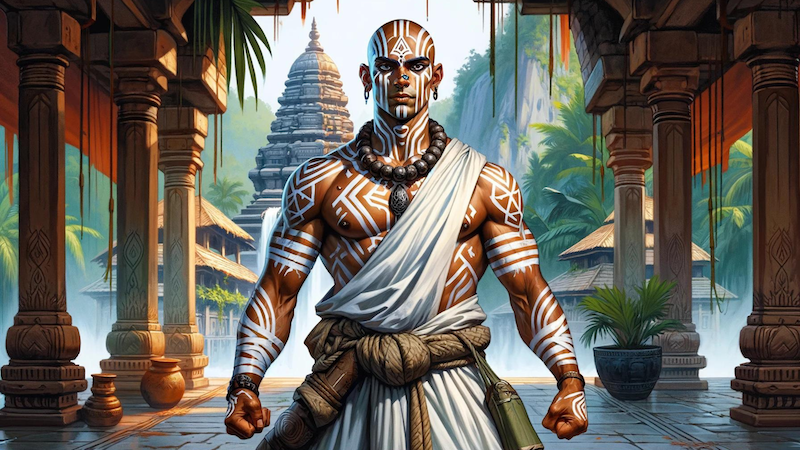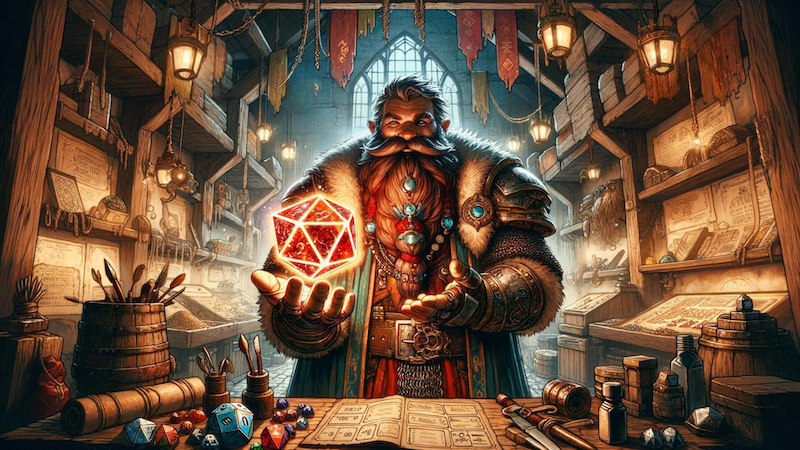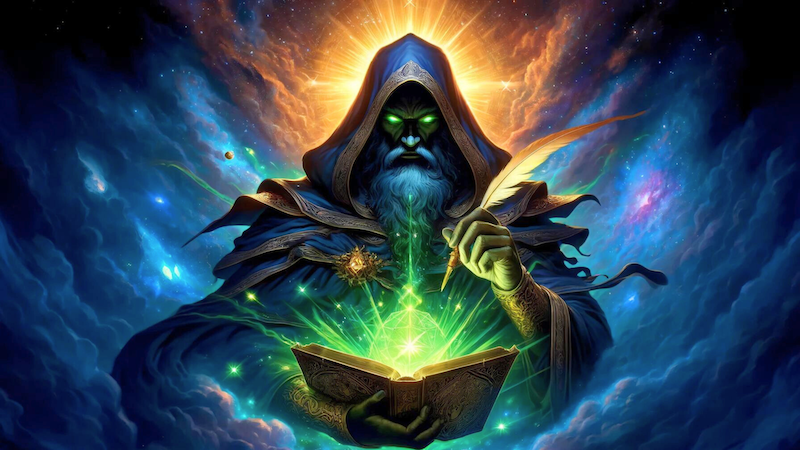

Wizards of the Coast Finally Responds After OGL 2.0 Fan Backlash
D&D publishers releases public statement after online outrage regarding new Open Game License
Dungeons & Dragons publisher Wizards of the Coast (better known as WotC to fans and detractors) finally broke its silence regarding the D&D Open Game License (OGL); the legal guidelines indicating which rules and content can (and cannot) be used by third-party publishers.
In a message entitled An Update on the Open Game License, posted on the online game platform D&D Beyond, Wizards of the Coast addressed many of the concerns raised after the recent OGL 1.1 leak and walked back a number of changes that had appeared in that draft, including the elimination of royalty payments and a future promise that players would retain full legal ownership of all third-party materials.
In the now heavily scrutinized D&D Beyond post, WotC promised that the new OGL was still in development and not ready for final release “because we need to make sure we get it right.” The company promised to take feedback from the community and continue to make revisions to the OGL that made it work for both WotC and its third-party publishers.
What’s the OGL controversy all about?
The Open Game License controversy first started in December 2022 when online rumors began to circulate that Wizards of the Coast was planning to scrap the OGL as part of their upcoming One D&D playtest; a move which would have serious financial repercussions for third-party publishers and potentially jeopardize what fans have long referred to as an “Open D&D” system.
Following the rumors, Wizards of the Coast posted an official statement on the D&D Beyond platform assuring Dungeons & Dragons fans that the the OGL was not going away. Instead, they indicated that there would be several minor changes, but that the majority of third-party publishers would not be adversely impacted.
A few days after this announcement, however, an “OGL 1.1” document was leaked to the public and detailed a number of significant changes that resulted in even more outrage among fans and publishers.


What are fans and publishers upset about?
The biggest issues with the updated license (now being referred to as “OGL 2.0”), according to D&D players and third-party publishers are as follows:
- OGL 1.0 is no longer binding: Publishers operating under the existing OGL may have to overhaul their products and distribution and must sign the updated OGL 2.0 document in order to continue publishing D&D materials.
- Declaring revenue: Publishers making over $50K a year in revenue will now be required to report their earnings to Wizards of the Coast.
- Registration required: Publishers will have to register all new products with Wizards of the Coast, regardless of how much revenue they’ve generated or whether the products are free or paid.
- Royalties must be paid: Publishers generating over $750K in revenue will now have to pay royalties (although this likely impacts only a relatively small number of publishers).
- Non-commercial publishers must sign: All publishers must now sign the OGL 2.0, even if they’re offering content for free.
- Licensed vs non-Licensed: Publisher will need to clearly and deliberately distinguish their content from existing licensed content (either through the use of font colors or an index)
- Termination with 30 days notice: Wizards of the Coast can modify or terminate the OGL 2.0 agreement for any reason whatsoever and is required to give only 30 days notice.
- Wizards of the Coast retains rights: Wizards of the Coast will still retain the right to use any content that licensees create, whether it’s for commercial or non-commercial purposes.


How are fans responding to OGL 2.0?
The fan backlash, however, has been swift and aggressive. Among the most notable responses has been a tweet from RPG personality Ginny Di (who appeared as a paid spokersperson for D&D at the Wizards Presents 2022 event), who urged followers to cancel their D&D Beyond subscriptions in protest of the OGL updates. Shortly after a number of users reported that D&D Beyond’s Subscription Management page was shut down due to user overload.
Di’s tweet also comes hot on the heels of other forms of online protest, including an Open Letter signed by over 15,000 fans and creators. Even after the post from WotC, the online uproar had failed to die down, with numerous players still taking to social media to express their anger and encourage users to cancel their D&D Beyond subscriptions with the hasttag #DnDBegone trending at several points.
One particular passage from the WotC post that seems to have earned the ire of fans reads “… you’re going to hear people say that they won, and we lost because making your voices heard forced us to change our plans. Those people will only be half right. They won—and so did we.”
How are publishers responding to OGL 2.0?
A number of large third-party DnD publishers who have used the OGL have already put out statements saying that they will either be moving away from the OGL or putting together their own rules systems.
One of WotC’s biggest competitors, the independent publisher Paizo, owner of the Pathfinder and Starfinder role playing games, is currently spearheading a campaign to create an Open RPG Creative License (ORC) that would be stewarded by a non-profit foundation.
Other publishers like Kobold press have also declared their intentions to join the ORC or create their own systems.


What’s next for the OGL 2.0?
It remains to be seen just when Wizards of the Coast will release the new controversial OGL 2.0, and indeed, what its final contents will include. According to reports from Gizmodo, the fan backlash has caused significant issues at Wizards of the Coast, with upper management now trying to manage messaging and potentially even overhauling OGL 2.0, all of which has lead to delays.
This is an ongoing story and we’ll continue to monitor and report on developments as they occur.
More D&D News Coverage
For more from the world of Wizards of the Coast, visit our D&D News page.


